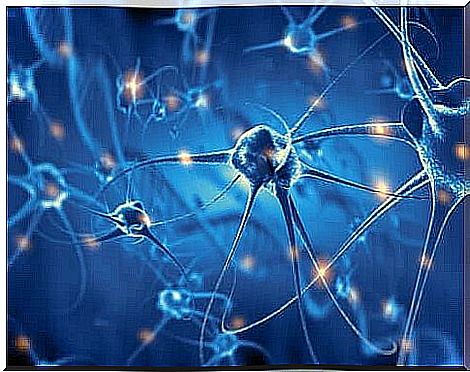What Happens To The Brain When You Exercise?

Exercise has many psychological, physical and social benefits. In addition to improving the immune system and preventing certain diseases, it can also improve your mood, self-confidence and physical appearance. From a physiological point of view, exercise is excellent for the heart and respiratory system. What effect does exercise have on your mental health? What happens to the brain when you exercise?
Exercise regulates the secretion of neurotransmitters, which are chemical cells responsible for communication between neurons. It also plays a role in neurogenesis, a process in which the body regenerates neurons and creates new ones. All this contributes to a healthy brain and good cognitive function. We will now go a little deeper into what the processes are.

Neural growth in the brain when you exercise
Many people believe that aging and certain habits lead to the death of neurons. In recent years, however, science has demonstrated that this is not the case. Researchers have seen how neurons can repair themselves, find compensatory mechanisms and increase the efficiency of the networks they form.
This ability is called neuroplasticity and it is essential for development and learning as well as recovering from injuries.
Neurogenesis is a mechanism of neuroplasticity associated with changes in the brain during exercise. The formation of new neurons is not a process that takes place everywhere in the brain. The hippocampus, the olfactory bulb and the subventricular zone of the lateral ventricle are the areas of the brain where this phenomenon occurs.
Over the past decade, researchers have focused on determining which factors encourage neurogenesis and which inhibit it. Two factors that they have identified so far are an enriched environment and physical exercise.
How does it happen?
Researchers do not yet fully understand how physical exercise affects neurogenesis. However, they have enough evidence to conclude that exercise increases levels of BDNF (Brain-derived neurotrophic factor) and VEGF ( Vascular endothelial growth factor ) in bodies.
BDNF and VEGF are proteins that promote neural survival as well as the formation of blood vessels.
BDNF
Researchers have found that BDNF levels double or even triple in your brain when you exercise and return to normal levels about an hour later. Researchers relate the increase in protein to a 2% annual increase in hippocampal volume. During the normal aging process, the size of the hippocampus is reduced by 1-2%.
In short, physical exercise increases the expression of the NMDA receptor on the neurons in the hippocampus. The activation of these receptors increases calcium levels and triggers the activation of pathways that ultimately regulate the expression of BDNF proteins. BDNF then activates another receptor (TrkB) present in stem cells in the hippocampus, which encourages the creation of new neurons.
VEGF
Although the mechanism relating VEGF to neurogenesis is still not clear, researchers believe that it plays a direct and an indirect role. On the one hand, it generates changes in neural stem cells. On the other hand, it increases the number and circumference of the blood vessels.
An increase in the number of blood vessels and the circumference of the blood vessels improves circulation and further the cellular health. Researchers have seen that exercise and the resulting increase in VEGF trigger an increase in stem cells and a reduction in cell death by modulating the expression of macrophages ( cells in the immune system that eliminate foreign substances).

What happens to the brain when you exercise: neurotransmitters
Physical exercise also triggers an increase in a number of neurotransmitters. When you exercise, for example, your body produces several catecholamines, which are neurons that prepare your body to respond to stressful, threatening or physically active situations.
Other neurotransmitters in this group are norepinephrine, dopamine and adrenaline. The increase in these substances as well as the increase in endorphins is the reason why physical exercise improves your well-being.
Another consequence of exercise is a reduction in cortisol, the so-called stress hormone. This also reduces the harmful effect that cortisol has on your body.
Learning and cognitive function
The process of neurogenesis, and neuroprotection in general, takes place primarily in the hippocampus. This area of the brain specializes in spatial ability and consolidation of long-term and short-term memory. In connection with the effect it has on the brain when you exercise , several studies suggest that regular physical exercise improves learning and memory.
As if this were not enough, it seems that this effect also includes other cognitive abilities due to the positive effect it has on mood and stress reduction. Treatment speed, decision making and selective attention can all be improved by exercising. In short, physical exercise appears to be related to an improvement in overall cognitive performance.









